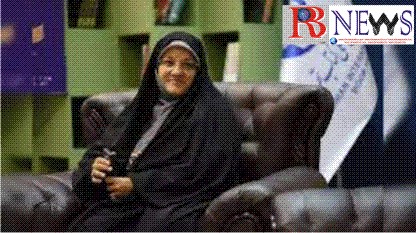After the death of Ibrahim Raisi in a helicopter crash, presidential elections are to be held in Iran on June 28. Candidates are registering to take part in the presidential elections. A former female legislator Zohreh Ilahian is also in the race to become the next president of Iran. But it is almost certain that her presidential candidature will end even before she contests the elections. Let us understand which law of Iran has made the country not get a woman president till date.
Ilahian is a 57-year-old doctor. She has been elected to the Parliament twice. Apart from this, she has also been a member of the National Security and Foreign Policy Committee of the Parliament. But still her path to becoming the President is very difficult. Whether she will be able to contest the elections or not depends on the Guardian Council.
Who approves the presidential candidates?
The Guardian Council oversees elections and laws in Iran. It is a 12-member council of jurists whose members are either appointed or approved by the Supreme Leader.
After a five-day registration period, the Guardian Council will vet candidates applying for the presidency. “The vetting process will be seven days and then qualified candidates will have about two weeks to campaign,” Iranian Interior Minister Ahmad Vahidi told state TV. The Guardian Council will release a list of qualified candidates on June 11.
Iran’s law that prevents women legislators from contesting presidential elections
Who will contest Iran’s presidential election is in the hands of the Guardian Council. According to Iran’s electoral law, candidates must be between 40 and 75 years old and must have at least a master’s degree. Ilahian meets this criterion. But her claim is considered difficult due to Article 115 of the Iranian Constitution.
Article 15 says that the presidential candidate must be from among “famous religious and political figures [rejal]”. Rejal is originally an Arabic word, which means male. But Iran’s commonly spoken Persian language is gender neutral. The law therefore does not clarify whether presidential candidates can only be men or include both male and female candidates.
How to read the law is in the hands of the Guardian Council, which believes that rejal refers only to male candidates. According to a Human Rights Watch report, in the 2001 presidential election, 47 women registered, but all were disqualified by the Guardian Council. If Zohreh Ilahian’s eligibility is not revoked in the 2024 presidential election, she will be the first woman to contest for Iran’s presidency.
 RB News World Latest News
RB News World Latest News






